 Human beings are a funny species. We see someone scarfing down a greasy burger, and we don't feel the need to ask them where they're getting they're fiber, vitamins or minerals. In fact, we don't really care what people are eating until...they say they're vegan.
Human beings are a funny species. We see someone scarfing down a greasy burger, and we don't feel the need to ask them where they're getting they're fiber, vitamins or minerals. In fact, we don't really care what people are eating until...they say they're vegan.
And if you happen to be vegan you'll know exactly what I'm talking about.
For most of my life, I was a pretty unhealthy vegetarian. I ate, predominantly, processed rubbish. I wasn't putting anything of any significant nutritional value in my mouth, but, by and large (because vegetarianism is not quite seen as the 'hippy' fad it once was), nobody said a word about my dietary choices - I was certainly never advised to eat more fresh fruits and vegetables, or whole grains, which are the things I needed to be eating more of.
When I turned vegan (cut out all animal-derived foods; milk, eggs, etc.), however, every single person I knew suddenly became an 'expert' in nutrition and, oddly, they had a rush of concern for my well being.
Apparently, I could not possibly be getting enough protein if I was eating no animal foodstuffs.
Well, there are two truths to address. The first is that the amount of protein we actually need is very much debatable. Opinions vary, but the for the sake of argument, we'll go with the American Dietetic Association's recommendation of a daily intake of around 0.8 grams of protein per 1kg (2.2 pounds) of body weight. So, someone who weighs 130 pounds would need 47 grams of protein per day.
How would a vegan ingest that kind of figure with only plants?!
- 1 avocado = 10 grams
- 1 cup of oatmeal = 6 grams
- Non dairy milk = 7-9 grams
- 2 slices of bread = 8 grams
- 2 tablespoons of peanut butter = 8 grams
- 1 cup of pinto, kidney or black beans = 14 grams
And that's just breakfast, lunch and one ingredient for dinner. Many plants are full of protein and it's no struggle at all for vegans to get their daily quota. And, as you can see in the picture above, vegan Derek Trezise is in rather fine fettle on his exclusively plant diet.


 We need milk for healthy teeth and bones: it's what we've been told our whole lives.
We need milk for healthy teeth and bones: it's what we've been told our whole lives. 

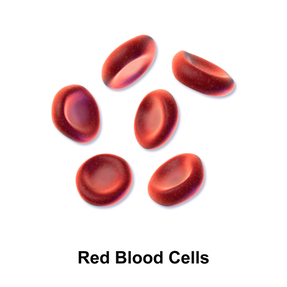 Many people are under the misapprehension that becoming vegetarian (or worse vegan), is a fast-track to iron deficiency. After all, if you're not consuming any meat, you're red blood cells are going to be up the proverbial creek without a paddle.
Many people are under the misapprehension that becoming vegetarian (or worse vegan), is a fast-track to iron deficiency. After all, if you're not consuming any meat, you're red blood cells are going to be up the proverbial creek without a paddle. Human beings are a funny species. We see someone scarfing down a greasy burger, and we don't feel the need to ask them where they're getting they're fiber, vitamins or minerals. In fact, we don't really care what people are eating until...they say they're vegan.
Human beings are a funny species. We see someone scarfing down a greasy burger, and we don't feel the need to ask them where they're getting they're fiber, vitamins or minerals. In fact, we don't really care what people are eating until...they say they're vegan.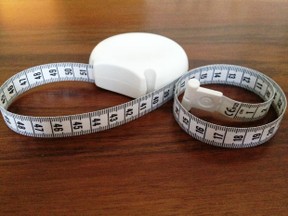 As I write this, it's January and lots of people I know are a week or so into their New Year diet. Some of them are starving themselves; some of them are only eating one type of food, believing it to be the one that will fight the flab; and some are spending huge amounts of money on low-fat (ergo high-sugar), diet snacks, milkshakes and salt-crammed ready meals.
As I write this, it's January and lots of people I know are a week or so into their New Year diet. Some of them are starving themselves; some of them are only eating one type of food, believing it to be the one that will fight the flab; and some are spending huge amounts of money on low-fat (ergo high-sugar), diet snacks, milkshakes and salt-crammed ready meals. 
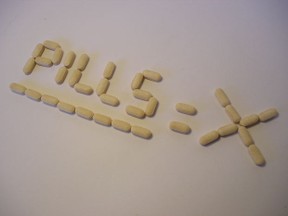 Now, I am not for one moment saying all vitamin and mineral supplements are bad or even unnecessary.
Now, I am not for one moment saying all vitamin and mineral supplements are bad or even unnecessary.


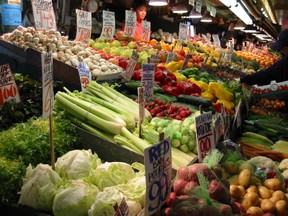 Eating foods as close to their natural state is always best.
Eating foods as close to their natural state is always best.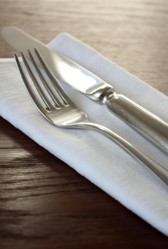

 How to Avoid College Debton 07/31/2014
How to Avoid College Debton 07/31/2014
 Was Charlotte Bronte Jealous of her Sister Anne?on 07/15/2014
Was Charlotte Bronte Jealous of her Sister Anne?on 07/15/2014
 Whose Side is Cancer Research UK on?on 07/06/2014
Whose Side is Cancer Research UK on?on 07/06/2014
 A Plot Summary of Electra by Sophocleson 07/05/2014
A Plot Summary of Electra by Sophocleson 07/05/2014

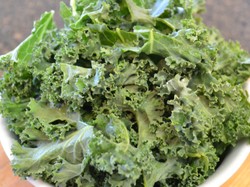
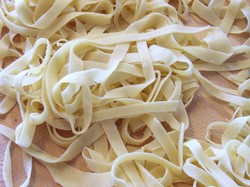
Comments
I agree each person needs to learn to pay attention to what their body needs - not just jump on the latest bandwagon diet or food fad. I've always loved fruit and vegetables but also enjoy a balanced diet (yes, including dairy products, love my cheese and milk in my tea!)
Thanks, Tolovaj. You're right, it seems crazy that we're not taught the basics of nutrition from a very early age, because it's certainly not innate in many of us and the 'western' diet doesn't really encourage a lot of 'good eating'.
But, I think, thanks to Campbell and co., the tide is turning. Information (like that about the effects of milk on calcium levels) is being more mainstream knowledge, and that's a positive at least.
I understand ordinary folks don't know a lot about nutrition but am always shocked when I hear doctors how good source of calcium is milk which actually steels calcium from body.
Such mistakes are supported with thousands of cases of people who became vegetarians or vegans without getting the basic knowledge about metabolism. I know several cases who got very sick because they simply stopped eating certain groups of food. Think first and act accordingly!
It is very good to see a critical approach to some common myths about food.
Hello Violette. I was also ten when I decided to turn vegetarian; my mum already was, so met no resistance from my parents.
Absolutely! You can be a very unhealthy vegetarian and a very unhealthy vegan, because there are still plenty of heavily processed, high-fat, high-sugar foods that contain no animal products. In fact, I think overly processed meat replacement products (like Quorn and Textured Soy Protein), can have very negative health effects.
Nice article, I am not a vegan but I chose to be a vegetarian when I was 10 years old. Even though I had my parents support, many seemed to be concerned that I was not taking meat or fish. Till this date I do not regret the decision. But as you mentioned it is more important to include more fruits and vegetables in the diet and limit the processed food, sometimes a vegetarian diet can also go wrong.
Hey Dustytoes, thanks for the comment. I've found that making your own food is time-consuming, and I can understand why busy lives get in the way. As you say, though, it's something we need to make time for. I find it's good to make more than I need, then leftovers make a base for the next night's meal.
It's so frightening when you start reading the ingredients on food packaging! So much salt and fat, and long chemical-sounding additives. Most of us put all that crap in our mouths without even realizing or thinking twice.
I'll add a bit to make the vegan/vegetarian difference clear; thanks for pointing that out. Sometimes, I forget that it's not as obvious to everyone as it is to me.
Here, here... you are absolutely on the right track. We have to do our homework and discover the truth about eating well for health, not to get skinny. As you have said, the pounds will fall off if we eat the way we are meant to.
The problem is that many adults have too much on their (daily work) plate, and grab what is easy for their dinner plate. Eating well means pretty much making your own food and that takes time. But we need to get back to doing that.
I have PKD (kidney disease) which has me reading labels for less salt intake, and that was very eye-opening.
Bottom line: be aware of what you eat, and be willing to cook that good stuff yourself.
Maybe you could explain the difference between vegetarian and vegan, on this page, as I, for one, am not sure.
Thanks, Mira. I agree completely, not everything is right for everyone. If we listen to our bodies; pay attention to how we're feeling and realize that fatigued, bloated and all the rest of it is not how we're 'supposed' to feel, we can't go far wrong.
Thank you, Ologsinquito. I'm glad you enjoyed the article and greatly appreciate the pin.
You and I think alike about food and health. People are slowly waking up to the fact that bottled and laboratory-made vitamins are not good for us over the long term. This is an excellent article and I'm pinning it to one of my natural health boards.
Hi Sam :)
The thing about nutrition is that even when you finally realize, for whatever reason, you have to eat right, there's some confusing info out there about certain aspects: amount of protein, grains, etc. So it's hard to figure out what to eat. I'm constantly trying this and that. But as I do that I'm learning more about my body, and am moving in the right direction, I feel.
But yes, I know people who followed diets and kept gaining more weight after each one. And it has happened to people who went to see nutritionists, too. Because nutritionists themselves have certain ideas about calories and type of foods -- and these may not agree with your body.
I've come to believe this is a journey everyone has to do on his/her own, picking up advice from various places but ultimately judging things for themselves according to how their body reacts and what feels healthy. But what you're writing in this article is hard to dispute :)